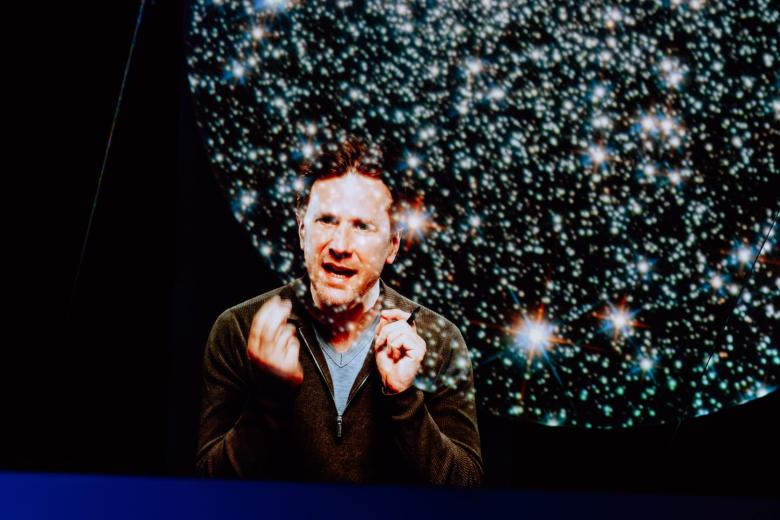Anna Schueth, German STEM Ambassador of the year 2021
-tekst alleen beschikbaar in het Engels-
This summer, none other than German Chancellor Angela Merkel presented the award lauditio for STEM (Science, Technology, Engineering, and Math) Ambassador of the year 2021 (MINT Botschafter des Jahres 2021) to Dr. Anna Schueth, post-doc at the Faculty of Psychology and Neuroscience. Merkel pointed out that now more than ever the work of the STEM ambassadors is crucial for STEM education and future developments in science.
Schueth was nominated by Cybermentor, the largest online STEM mentoring programme in Germany. In her free time, as part of the Cybermentor programme, Schueth encourages high-school girls to explore and develop their interest in STEM, gives them advice about study choices, and answers their science questions. “I am so happy and honoured to receive this award! I have been mentoring numerous high-school girls since 2009. As a high-school girl I would have loved to have a STEM mentor, and I think everything Cybermentor is doing is amazing and much needed.
Paying it forward as a woman in STEM
“The roots of my passion for mentoring lie in my own time in high-school. My maths and physics teachers called me stupid, and the study/career adviser suggested in the last high-school year that university is nothing for me.” What her teachers didn’t see, were Schueth’s personal circumstances, like her mother’s suicide attempt and bipolar disorder, that caused her grades to drop. “My parents told me never to give up on my dream, and I didn’t. I applied to several universities, got in, and obtained my biology degree. Despite what my teachers told me”. This is what Schueth is now trying to convey to her mentees. “When a career in STEM is your dream: don’t give up. With dedication, motivation, and support, you’ll get there.
A crucial role
When embarking on an academic career, a mentor is crucial. “Throughout my career, I’ve had different mentor, and each gave me important academic and life advice at the moments I needed it most. One that immediately come to mind, is the German professor Hardeland from the University of Göttingen. He had a great impact on my life and career, probably without even knowing it. 10 years later, we are still in touch”. Another important mentor in my academic career was my post-doc supervisor Dr. Alard Roebroeck, who supported me throughout several sick and pregnancy leaves and during a period of grief, when I had lost a baby.
What does an academic look like?
An academic, a mentor, an ambassador for the sciences. All these titles conjure up a certain image. “But we take many forms. For over 10 years I have been covering up my tattoos for work occasions, when I must look “professional”. And I feel that in those moments I cannot be myself. But I get it. This is “luxury problem”. I wear a black suit and can change my outer appearance within a couple of minutes. I cannot imagine how people feel, who are discriminated, or experience hate because of skin colour, hair, religion and more. But I can and will continue to be an advocate for stigma awareness and stop covering up, who really am. The positive feedback for my awareness has been overwhelming and so positive. On a daily basis, people send me "thank you" messages for what I do and how I present myself."
Lees ook
-
Macrofagen als sleutel tot behandelen van leverfibrose
Sabine Daemen onderzoekt hoe bepaalde macrofagen leververvetting en -fibrose kunnen afremmen om nieuwe therapieën te ontwikkelen.

-
Come to Your Senses: verrijk je leven en je leerproces
Emilie Sitzia onderzoekt hoe we onze zintuigen kunnen herontdekken en gebruiken voor een betere leerervaring. Dit leidde tot het kleurrijk geïllustreerde boek ‘Come to Your Senses’, een handleiding voor zintuiglijk leren.

-
In Kerkrade luister je naar het onzichtbare deel van het universum
De Universiteit Maastricht en Discovery Museum in Kerkrade maken de Einstein Telescope begrijpelijk voor iedereen.
